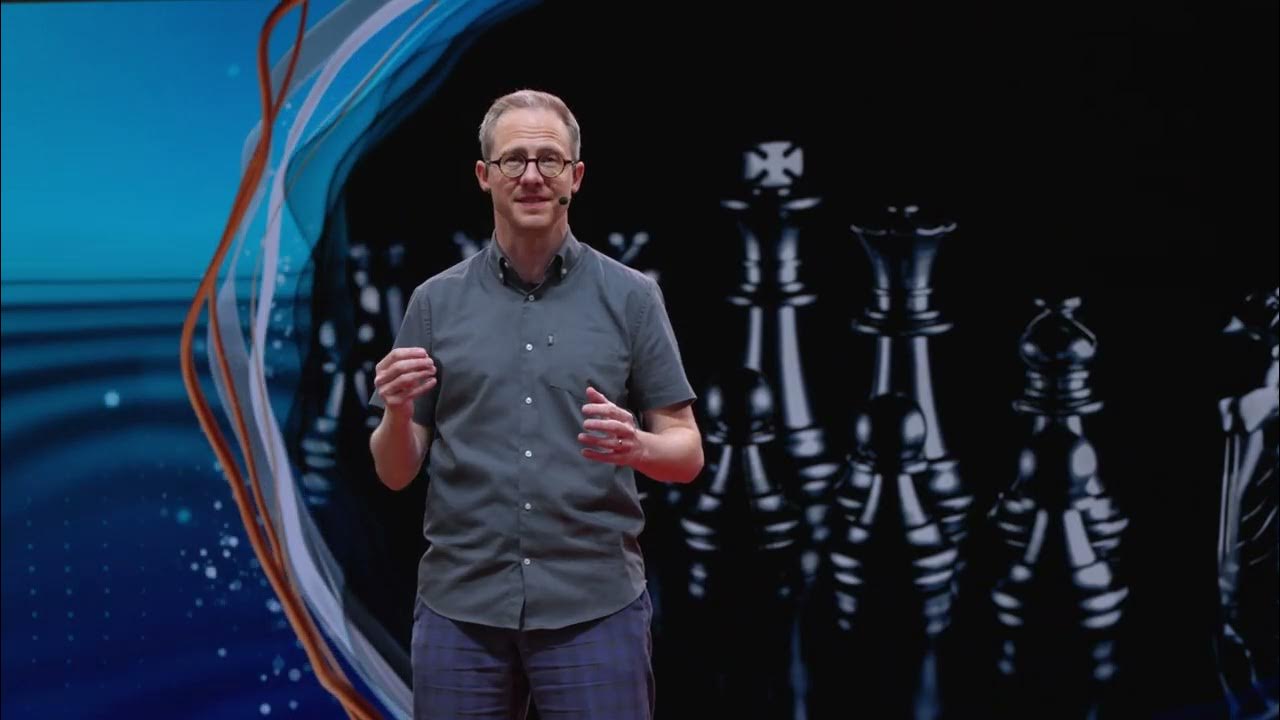Mighty Magulang: Revisionism
Summary
TLDRThe video explores the concept of historical revisionism, emphasizing how scholars reassess traditional views and introduce new evidence to reshape our understanding of history. It also highlights the difference between historical revisionism, which is a scholarly practice, and historical denialism, which distorts facts, such as Holocaust denial. The script touches on the criminalization of historical negationism in some countries and underscores the importance of evidence-based historical analysis. It concludes by stressing that while historical revisionism can be valuable, it should not be confused with distortion or denial of historical facts.
Takeaways
- 😀 Historical revisionism is the study and reevaluation of historical events, incorporating new evidence and perspectives.
- 😀 The goal of historical revisionism is to challenge traditional views and present updated interpretations based on new discoveries.
- 😀 Historical revisionism can also involve revisiting outdated moral judgments about historical events.
- 😀 For example, the traditional belief that Magellan discovered the Philippines is challenged by evidence that thriving communities existed before his arrival in 1521.
- 😀 Historical revisionism is not inherently bad, as it seeks to offer a more accurate understanding of the past.
- 😀 Historical denialism, also known as negationism or falsification, distorts history through deceptive practices and false claims.
- 😀 Countries like Austria, Belgium, Germany, Lithuania, Poland, and Switzerland have criminalized historical negationism, especially in relation to the Holocaust.
- 😀 Holocaust denialism is considered harmful, as it attempts to distort the historical reality of a traumatic event.
- 😀 The script contrasts historical revisionism with historical denialism, emphasizing that the former aims for a truthful exploration of history, while the latter promotes falsehoods.
- 😀 The script includes an extreme example of Holocaust denialism, reinforcing the dangerous nature of distorting history for ideological purposes.
Q & A
What is historical revisionism?
-Historical revisionism is the process of critically examining and revising traditional historical views or events, often by introducing new evidence and perspectives that challenge or update previous understandings.
What is the role of new evidence in historical revisionism?
-New evidence plays a crucial role in historical revisionism as it helps update or correct earlier historical narratives, potentially leading to a more accurate understanding of past events.
How does historical revisionism affect moral judgments about the past?
-Historical revisionism can lead to the reversal of outdated moral judgments by re-examining past events and integrating new findings that might change the way we view certain actions or decisions from history.
What example of historical revisionism was mentioned in the script?
-The example of historical revisionism mentioned in the script refers to the discovery of the Philippines by Ferdinand Magellan in 1521. New archaeological and anthropological evidence suggests that thriving communities already existed in the Philippines when Magellan arrived.
How does historical revisionism differ from historical denialism?
-Historical revisionism involves the critical study and reassessment of history with new evidence, while historical denialism (or negationism) is the distortion or falsification of history, often with the intent to deceive or manipulate public perception.
What is an example of historical denialism, as mentioned in the script?
-An example of historical denialism mentioned in the script is the Holocaust denial, where individuals falsely claim that the Holocaust did not occur or downplay its significance.
Why is historical denialism considered harmful?
-Historical denialism is considered harmful because it distorts the truth, undermines historical knowledge, and can perpetuate harmful ideologies or biases. It often leads to the rejection of well-documented historical events for ideological or political reasons.
What stance do some countries take regarding historical negationism?
-Several countries, including Austria, Belgium, Germany, Lithuania, Poland, and Switzerland, have criminalized historical negationism, specifically related to the Holocaust, in an effort to prevent the spread of false or misleading historical narratives.
What was the controversial statement mentioned in the script regarding the Holocaust?
-The script includes a controversial statement attributed to a Holocaust denialist, which claims that the Holocaust was 'good for our country' and represented 'our golden years.' This reflects the kind of dangerous rhetoric that historical denialism promotes.
How can historical revisionism contribute to a more accurate understanding of history?
-Historical revisionism contributes to a more accurate understanding of history by revisiting past events with a critical eye, incorporating new evidence, and offering alternative perspectives that challenge outdated or biased interpretations.
Outlines

This section is available to paid users only. Please upgrade to access this part.
Upgrade NowMindmap

This section is available to paid users only. Please upgrade to access this part.
Upgrade NowKeywords

This section is available to paid users only. Please upgrade to access this part.
Upgrade NowHighlights

This section is available to paid users only. Please upgrade to access this part.
Upgrade NowTranscripts

This section is available to paid users only. Please upgrade to access this part.
Upgrade NowBrowse More Related Video

What is History? (Part 6 of 6) - 'Drinking an ocean and pissing a cupful’.

History Comes Alive! w/ Prof. Ambeth Ocampo: FAKE NEWS

Kompersos Modernisasi bagian 1

PRIODESASI SEJARAH PERADABAN ISLAM | KULIAH DARING

Is there consciousness beyond the brain? | Philip Goff | TEDxNewEngland

Geopolitik_ WaNus [1]
5.0 / 5 (0 votes)